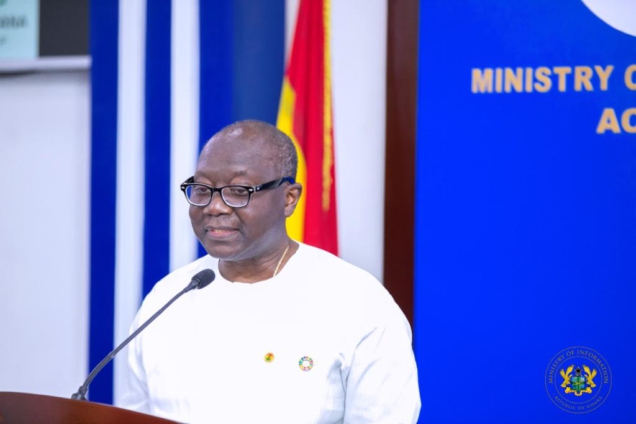Ghana’s request that private pensions forfeit some interest payments on government bonds to help it restructure debt and qualify for $3 billion of International Monetary Fund (IMF) support has received short shrift from local funds.
The West African country on Monday started offering domestic bondholders fresh local-currency bonds that won’t pay interest before 2024 in exchange for their existing debt.
But private pension funds, which held about 5.5% of domestic bonds as of the end of August, say the deal isn’t acceptable and want the government to discuss new terms.
“The proposal as put forth by the Minister of Finance is inferior to market expectation and will destroy the savings of Ghanaians and further undermine market confidence,” the Chamber of Corporate Trustees, an umbrella body for private pension trustees, said in a statement Tuesday.
“This is why we reject it outright.”
The West African economy launched a portal Monday where domestic bondholders can apply until Dec. 19 to replace about 137 billion cedis ($10.4 billion) of existing debt with new bonds maturing in 2027, 2029, 2032 and 2037.
Interest on the new bonds will not accrue until 2024 to reduce the country’s debt burden. Investors won’t receive annual coupon payments in 2023, 5% in 2024 and 10% from 2025 onward, according to the Ministry of Finance.
The pensions’ pushback could derail a debt-exchange program aimed at reducing Ghana’s debt burden and interest payments so it can qualify for IMF support.
Representatives of the Washington-based lender are in Ghana to complete talks with authorities in a mission set to end on December 13. Ghana and the organization, which have been in discussions since July, have said they are targeting an IMF staff-level agreement this month on a three-year program of as much as $3 billion.
The country had 393.4 billion cedis ($29.9 billion) of debt at the end of June, and debt-serving costs equivalent to 68% of tax revenue over the same period, according to budget data.
Ghana’s cedi, the world’s worst-performing currency against the dollar this year, has lost 53% of its value, increasing the cost of servicing the loans.
Latest Stories
-
Bawumia joins thousands in Kumasi for burial prayers for Ashanti Regional Imam
2 hours -
Blue Gold Bogoso Prestea Limited challenges government actions in court
3 hours -
Verdicts due for 51 men in Pelicot mass rape trial that shook France
3 hours -
Syria not a threat to world, rebel leader Ahmed al-Sharaa tells BBC
3 hours -
Patrick Atangana Fouda: ‘A hero of the fight against HIV leaves us’
4 hours -
Trinity Oil MD Gabriel Kumi elected Board Chairman of Chamber of Oil Marketing Companies
4 hours -
ORAL campaign key to NDC’s election victory – North America Dema Naa
5 hours -
US Supreme Court to hear TikTok challenge to potential ban
5 hours -
Amazon faces US strike threat ahead of Christmas
5 hours -
Jaguar Land Rover electric car whistleblower sacked
5 hours -
US makes third interest rate cut despite inflation risk
5 hours -
Fish processors call for intervention against illegal trawling activities
6 hours -
Ghana will take time to recover – Akorfa Edjeani
6 hours -
Boakye Agyarko urges reforms to revitalise NPP after election defeat
6 hours -
Finance Minister skips mini-budget presentation for third time
6 hours

